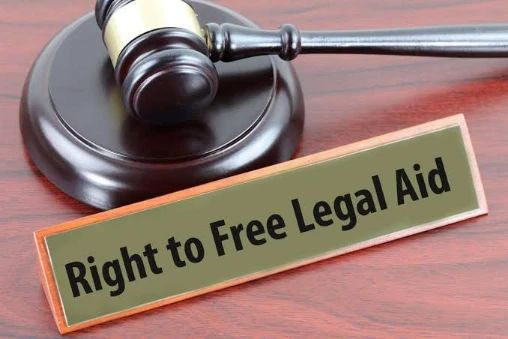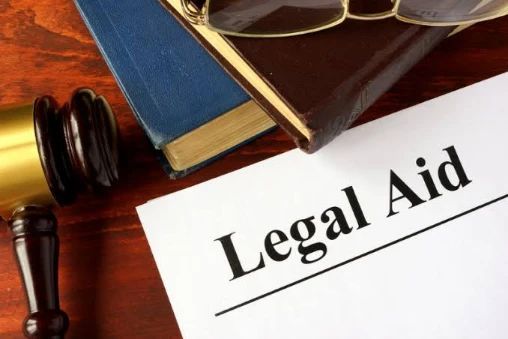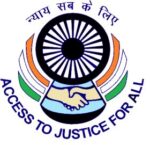equal justice and free legal aid | free legal aid in india | right to free legal aid
Meaning of equal justice and free legal aid – Our country India has been a justice-loving country since ancient times. Policy, justice, religion etc. have been his ideals. He has always despised injustice. History is witness to the fact that Indians never tried to attack helpless and weak people. Many such stories are read in our books, in which helpless and weak people have always been defended.

In the field of law and justice, provision has been made to provide legal aid to poor and helpless persons. In our judicial system, the opposition has been given a fair opportunity to defend itself. The objective of the Indian judicial system has never been to do one-sided justice.
If any party is poor, or has no means. So proper means are collected for him. Most of the democratic countries of the world have accepted the Legal Aid Scheme. Important provisions have been made regarding Legal Aid in various laws.
Definition of Legal Aid:

Different scholars and international organizations have defined legal aid as follows: –
1. According to Sir Thomas Lund of the International Legal Aid Organisation, “Legal aid refers to the right of a person to obtain legal opinion from a lawyer in any difficult situation.”
2. According to the International Legal Aid Organization. “ Legal Aid is the assurance that no person is deprived of his rights merely because he could not get the services of a legal expert due to paucity of funds or any other reason.”.
| Read Also:- interesting facts related to capital punishment |
3. According to the Ontario Legal Aid Act 1966, “The Legal Aid Scheme guarantees to every person that. That the right to be represented or represented in the court of law by a lawyer or legal practitioner of his choice, irrespective of the fee being provided, is a protected right.”
4. Said by Seton Pollock in ‘The Irish Legal Aid System’. That “legal aid in the basic sense refers to the assistance provided to persons concerned with determining and enforcing their rights under the law. It provides legal services for a nominal fee or free of cost to those persons who are otherwise unable to do so.
5. According to Dr. S.N. Jain. To remove or reduce the effect of poverty in the administration of justice, providing proper help to poor people is legal aid.
6. According to Justice Krishna Iyer, “ Legal Aid as an instrument of justice is a social imperative and an integral part of the administration of justice. Therefore, it is clear from the above definitions that the main objective of legal aid is to protect the rights of the poor and weaker sections of the society by not depriving them of justice merely because of lack of money . The same spirit of legal aid has been accepted in Article 39 of our Constitution .
Objectives of Legal Aid – Following are the main objectives of legal aid-

(i) To provide free legal aid to the poor and weaker sections of the people ,
(ii) to make available to every person the services of a legal expert or advocate for his defence ,
(iii) to make arrangements for such remuneration,
(iv) Motivating voluntary organizations for legal aid and giving grants to them,
(v) To give a copy of the judgment free of cost to the persons sentenced to imprisonment.
(vi) To arrange for the presentation of appeals, etc., of the cases of persons imprisoned in the appropriate courts, etc.
free legal aid in India:

This provision has been made in Article 39 (a) of the Constitution,
“The State shall ensure that the legal system functions in such a way as to facilitate access to justice on the basis of equal opportunity and, in particular, to ensure that opportunities for securing justice are not denied to any citizen by reason of economic or any other disability, provide free legal aid by suitable legislation or scheme or in any other manner.” Thus it is clear that the main objective of the constitution is to provide equal opportunities of justice to every citizen.
Thus it is clear that the main objective of the constitution is to provide equal opportunities of justice to every citizen.
It is the spirit of the Constitution that no citizen shall merely-
(i) meaning or (ii) any other disability;
Do not be deprived of justice because of It is also stated in section 304 of the Code of Criminal Procedure, 1973.
It is also stated in section 304 of the Code of Criminal Procedure, 1973,
Where in any trial before the Court of Session the accused is not represented by a pleader, and where it appears to the Court that the accused does not have sufficient means to engage a pleader, the Court shall make use of the State Government for his defence. Pleader will get it done at expense.
In this way, in the Code of Criminal Procedure, a provision has been made for free legal aid for the poor accused.
In the case of Dilawar Singh v. State of Delhi , there was no advocate to appear for the accused during the criminal trial. The services of an amicus curiae were made available to him by the court.
In fact, it is the duty of the state to provide free legal aid to the poor, not compassion.
In the case of Mohammad Hussain alias Zulfikar Vs. State , it has been held by the Supreme Court that- awarding death sentence without providing legal aid to the accused on serious charges violates the concept of due process of law. It is mandatory for such accused to appoint a lawyer.
In the cases of Sukdas Vs Union Territory of Arunachal Pradesh and Hussain Ara Khatoon Vs State of Bihar , free legal aid has been considered as a fundamental right of a poor person. Persons eligible for free legal aid- Provision regarding persons eligible for free legal aid has been made in Section 12 and 13 of the Legal Services Authorities Act, 1987.
right to free legal aid

The following persons can apply for free legal aid-
- (1) A member of a Scheduled Caste or a Scheduled Tribe
- (2) the victims of human trafficking or forced labor referred to in Article 23 of the Constitution;
- (3) A woman or child
- (4) a person suffering from the following (a) public nuisance; (b) caste violence; (c) caste atrocities; (d) flood (e) dry (f) earthquake and (g) Industrial nuisance
- (5) Industrial workers
- (6) the person to be in custody; And
- (7) A person earning income less than that prescribed by the appropriate Government from time to time.
In the last category, such poor people or accused come who are without means, that is, who do not have sufficient means to appoint a lawyer.
Application
Normally an application has to be made to the court in which the case is pending for free legal aid.
Under the Legal Services Authority Act, the following committees have been constituted from where legal aid can be available-
(a) Supreme Court Legal Services Committee;
(b) High Court Legal Services Committee
(c) District Legal Services Authority
(d) Taluka Legal Services Committee etc.
More information regarding this can be obtained from the following-
(i) the National Legal Services Authority;
(ii) State Legal Services Authority and
(iii) District Legal Services Authority
Legal aid form pdf download
https://rlsa.gov.in/pdf/Legal%20Aid%20App%20Form.pdf
FAQ:
Who is entitled to free legal aid?

The Legal Services Authorities Act prescribes who is entitled to legal services.
Section 12 of the Act states that the following persons who have to file a case or defend a case shall be entitled to legal services-
1. who belongs to scheduled caste or scheduled tribe community
2. Poor person whose annual income is Rs 50,000 for cases in the Supreme Court and the income level in other courts will be determined by the state government which will vary from state to state
3. victims of human trafficking or beggars; women or children
4. People affected by mass destruction, ethnic riots, ethnic persecution, floods, droughts, earthquakes
5. Industrial workers
6. Persons kept in all types of custody including protective custody, such as juvenile delinquents, persons kept in homes and mental hospitals, etc.
This means that a person in custody, whether undertrial or convicted, is entitled to free legal services.
